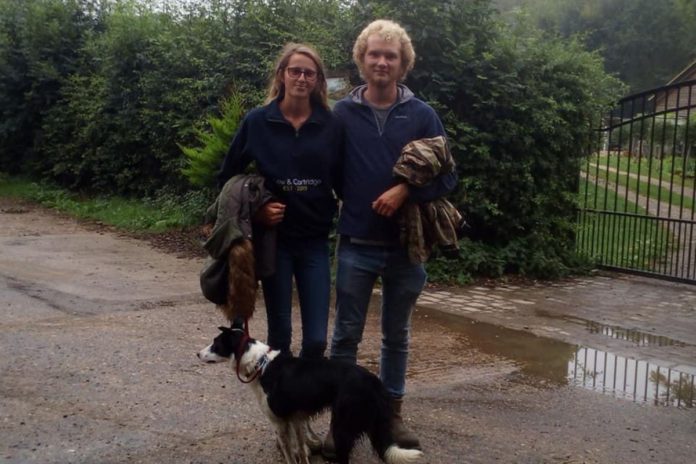In this week’s Women in Agriculture segment, Paige Misselbrook provides an insight into her life as a sheep, cattle and pig farmer in the UK.
My name is Paige Misselbrook; I am 23, and I, along with my other half, George (22) farm sheep, cattle and pigs in Central Bedfordshire.
We rent all our land around the local area, which can sometimes provide its challenges. I was brought up on my parent’s livestock farm and am the third-generation in the family to continue the farming tradition.
When I was young, the family farm was a dairy enterprise, and I remember learning to milk the cows at a very young age.
When I was in my teenage years, the farm then went from dairy to beef cattle, where my mum and dad would buy in calves and rear them until they were ready to sell as store cattle.
They now farm a herd of 50 suckler cattle, running their suckler offspring and buying in some stock until store sale stage.

Sheep
My main passion for farming is the sheep sector. I fell in love with sheep farming when I went to do some lambing work for a family friend back in my teenage years and haven’t looked back.
Admittedly, I have a passion for breeding and rearing our pedigree flock of Kerry Hill Sheep, which we established in 2017. I am proud to produce each generation of sheep, seeing the flock as a whole improve throughout the years as we have selected a strict breeding program.
Our farm currently consists of 200 breeding ewes, 7 breeding heifers, 4 store cattle and 10 weaner piglets.
I do the day-to-day running of the stock, as George still works full-time for a farming contractor.
We have 26 pedigree Kerry Hill breeding ewes (Midnight Kerry Hill Flock) and 7 pedigree Suffolk breeding ewes (Misselbrook Suffolks).
Besides, our commercial flock consists of Texel-crosses, Suffolk-crosses, Welsh Mountains and North of England Mules.
This year, we lambed the ewes in two groups. We lambed 108 ewes from 24/01/2021- 01/03/2021. The second batch of lambers started on 28/03/2021, and we will be finishing this up on 02/06/2021.
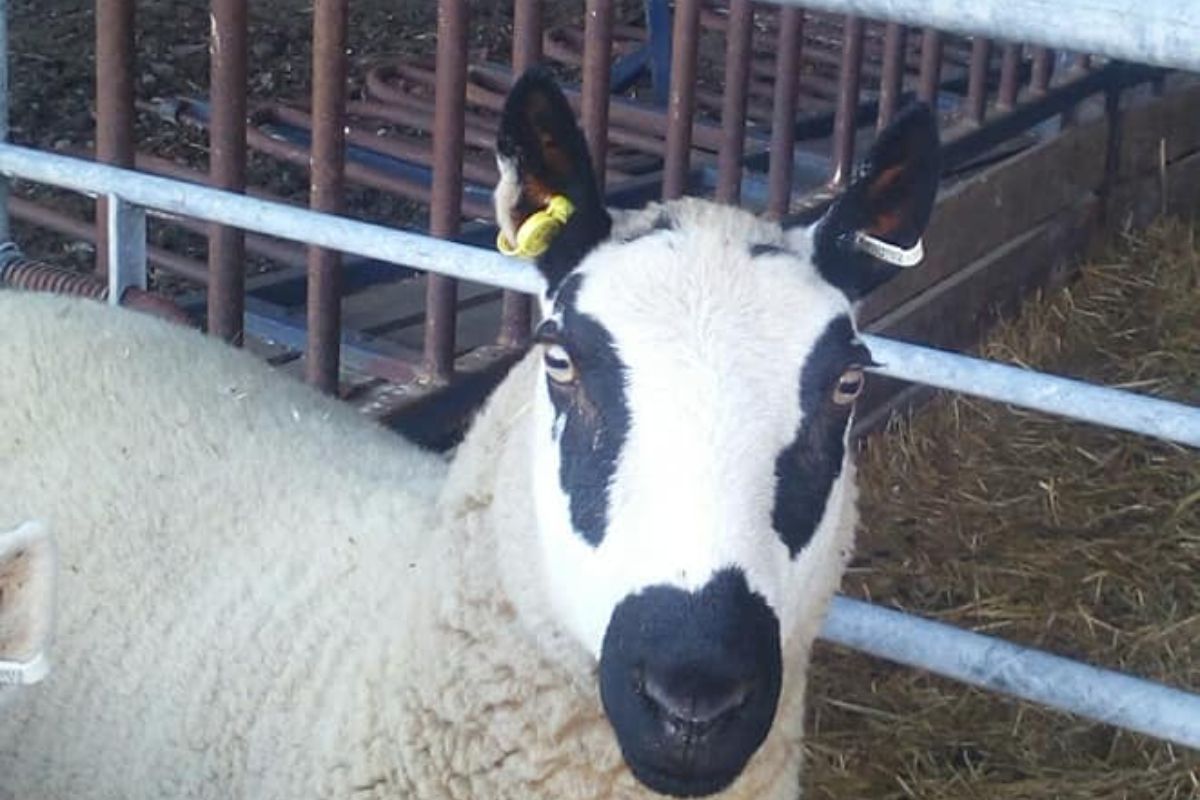
Breeding programme
Tups used are varied, with the Kerry Hill tup on the pedigree Kerry ewes. In addition, we utilise a Suffolk tup on the pedigree Suffolk ewes and 30 cross-bred ewes. Besides, we run Texel tups on Suffolk-cross ewes and Cheviot tups on Welsh and Mule ewes.
We lamb all our ewes indoors. To note, we find it easier to manage the ewes, ensuring they have all the correct intake they need and easier to help them lamb if need be.
We keep some progeny on the farm for future breeding. In addition, we pick around 25 ewe lambs each year to keep back. Most of these will be pedigree Suffolks, Texel-cross-sired lambs and Cheviot-cross-Mule lambs.
We sell our pedigree Kerry Hill tup lambs, ewe lambs and pedigree Suffolk tup lambs as breeding stock later in the year once they have grown on.
We use a teaser tup on the Kerry Hill ewes to bring their lambing forward and tighten their lambing period. The rest of the flock are served naturally.
We have exhibited our stock in the past at local shows and hope to do it again, later this year, now that the Covid restrictions have eased. Normally, we show sheep from both our Kerry Hill and Suffolk Flocks.
I am a member of the National Sheep Association and the Working Sheep Dog Association. Honestly, I am very passionate about these and always enjoy learning more about these sectors. I find taking my sheepdog out and doing some training can be one of the most rewarding things.
Beef herd
Our herd of cattle consists of 7 bulling heifers that we plan to breed from and then four yearlings that we are fattening up to sell as stores later in the year.
We have a range of breeds: Aberdeen Angus, British Blue, Hereford, Charolais, and Limousin.
Furthermore, we aim to calve our first lot of heifers in March 2022, and we will rear all the offspring from these until store cattle stage.
We will continue to buy in bottle calves throughout the year to rear ourselves on milk. Again, we take most of these to store stage, selling some as weanlings.
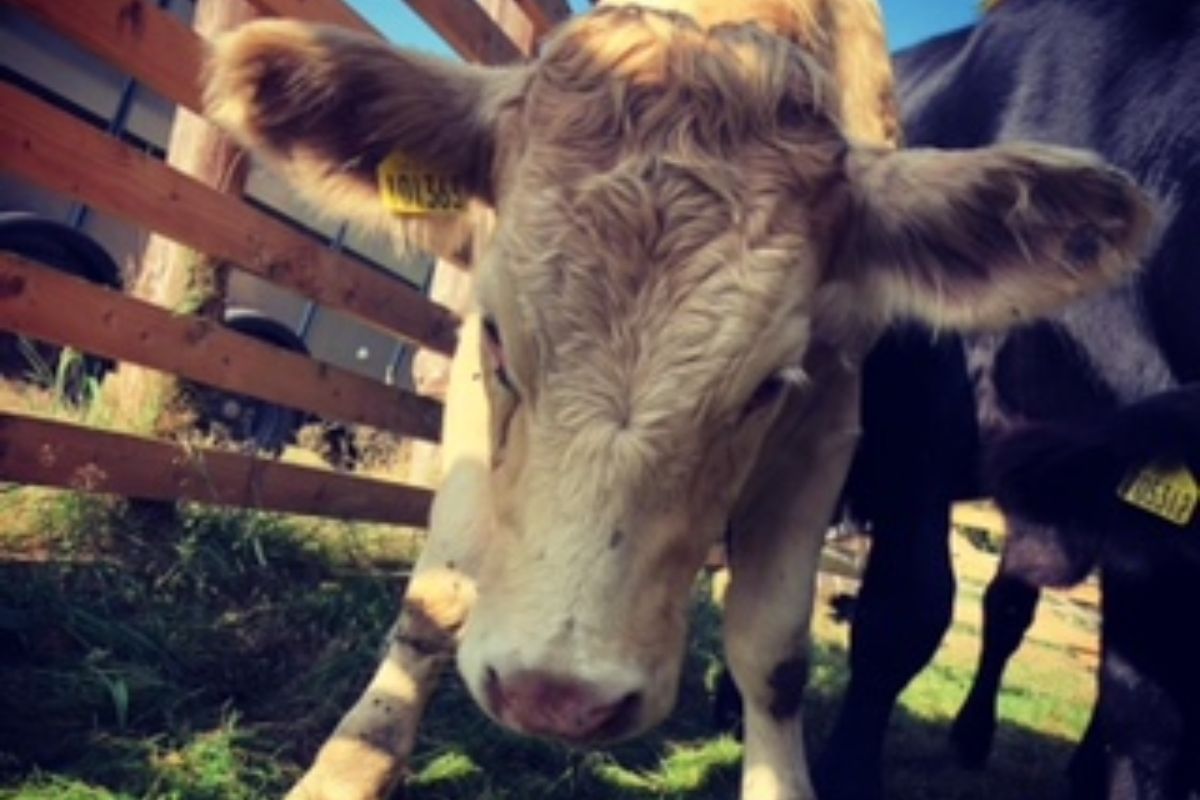
Pig farming and job satisfaction
Furthermore, we have recently brought in 10 cross-bred weaner piglets.
Our plan for these is to fatten them and send the majority to our local farmers market, with the remaining few taken directly to slaughter for our own consumption.
For me, the most enjoyable thing about farming is lambing season.
I love bringing new life into the world and seeing them thrive. It can be one of the most rewarding yet challenging times in the farming year.
While I am full-time looking after our own stock, I also work part-time on two farms, working one day a week on a mixed livestock and arable farm and then a few hourly shifts three days a week on a fattening cattle farm.
I would like to get back into more contract shepherding work, but this has eased while our stock are lambing.
Due to us still trying to grow our stock numbers, it means both myself and George have to continue working to help support our farming venture.
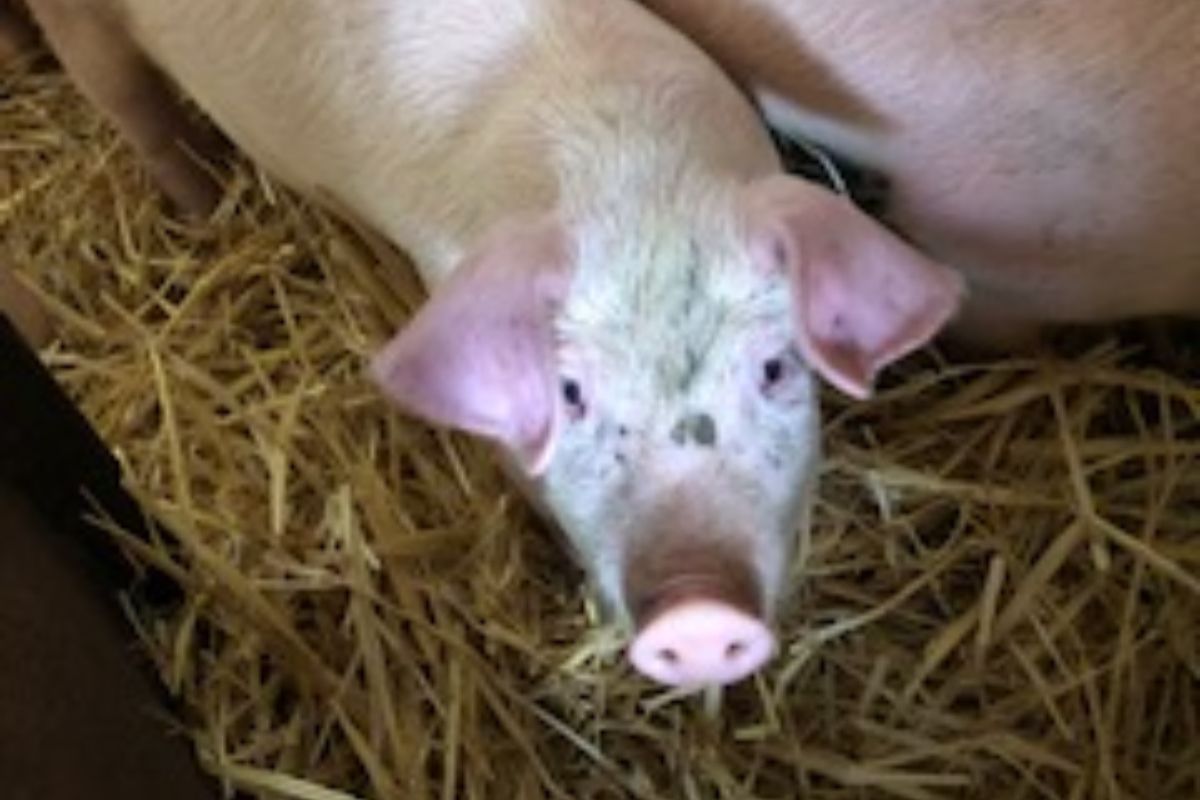
Women in agriculture
Being a woman in agriculture, where the industry is traditionally a male-dominated area, I find there are a lot of people that think we aren’t as capable as men.
I find the best way to solve this theory is to prove them wrong.
It may take us a bit longer to do certain jobs or to find other ways of doing things, but the job always gets done to the best of our abilities.
I am proud to see the number of women joining the agriculture industry is on the increase and feel that it brings a positive light to those that are interested in joining the industry.
To note, I would love to be able to encourage many females to challenge the stereotype that agriculture is a man’s industry.
I believe that providing great role models and mentors within the industry is vital to developing others.
There are many networks and organisations that do their part to advocate for women in agriculture. Joining these networks gives rural women a chance to meet and interact with others in similar situations.
I feel it is important for women in agriculture to speak up and share their knowledge and experiences with the next generation.
We need to teach kids the importance of working the land, so they are aware of the responsible farming practices, animal and environmental impacts and most importantly, where their food comes from.
I also feel it is important to teach the parents and teachers of these young people what it is farmers do. Otherwise, there will always be misconceptions. Farming shouldn’t be portrayed as a low-skilled manual job that is classed as a last resort for many children, which I hear many people say it is.
I do not think people realise what a vast number of vibrant, diverse and highly skilled careers the agriculture industry has. It is then our responsibility to ensure that all children are given the opportunity to explore their passion for agriculture.
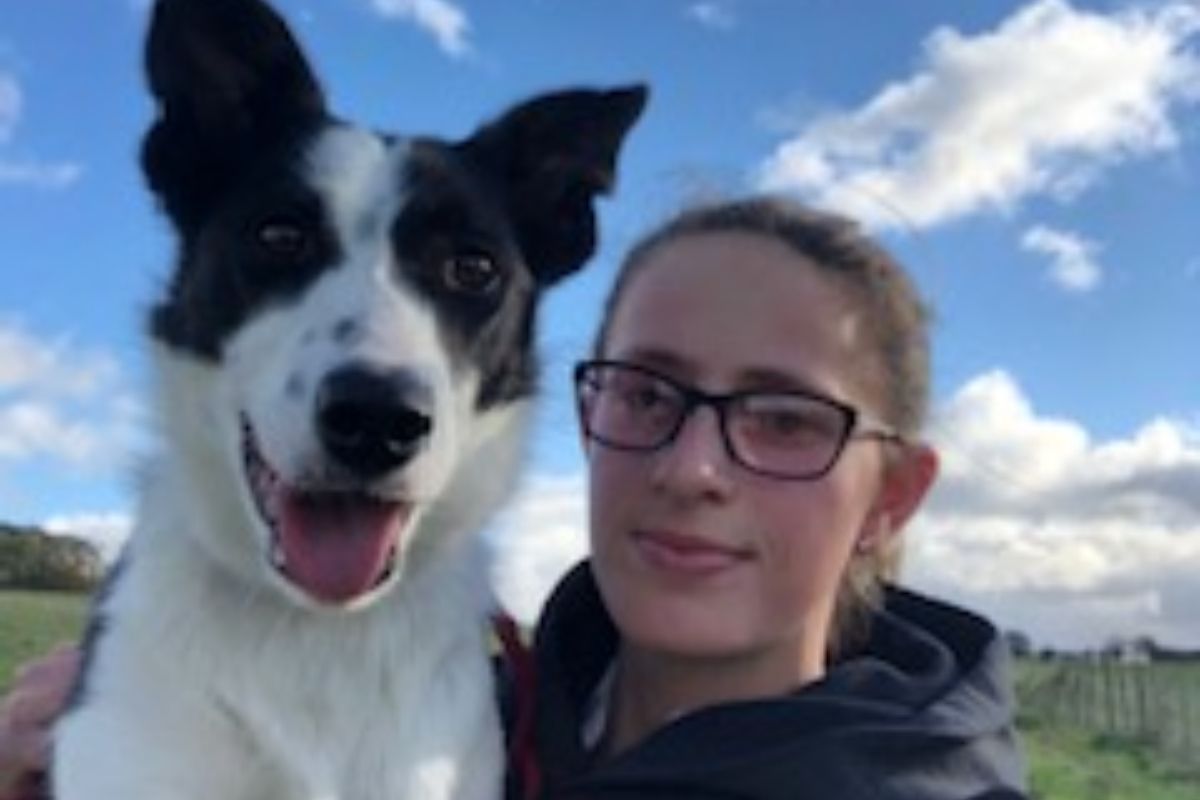
Future
In terms of my plans, I would eventually like to be running our farm on a larger scale, with both George and I working full-time on the farm. Our ultimate goal is to have a long-term farm tenancy where all our land is together, making our stock management easier and allowing us to increase our stock numbers.
I would also like to get more into the sheepdog training industry, helping others train their dogs and taking on young dogs myself to train up and sell on to fellow farmers that need a helping hand from a four-legged friend.
My journey in agriculture been very positive, and I hope to encourage many other females to follow in my footsteps.
I believe the outlook on the future of farming as an industry itself is very bright. This is because our wide range of technology is always improving.
Furthermore, I feel this will allow farms to be more profitable, efficient, safe and environmentally friendly.
In conversation with Catherina Cunnane


